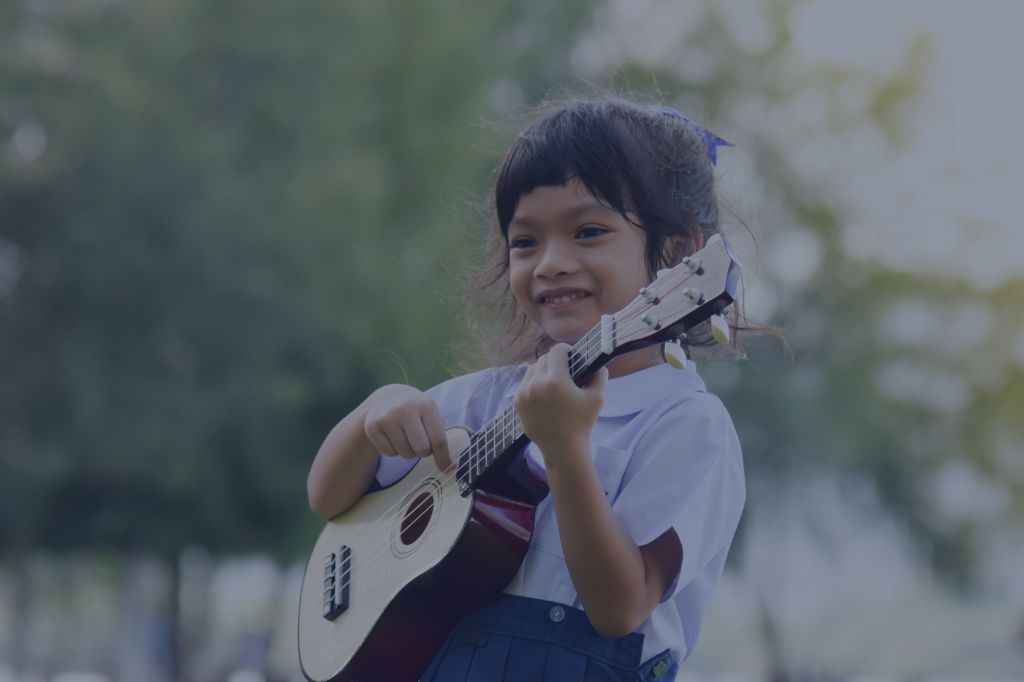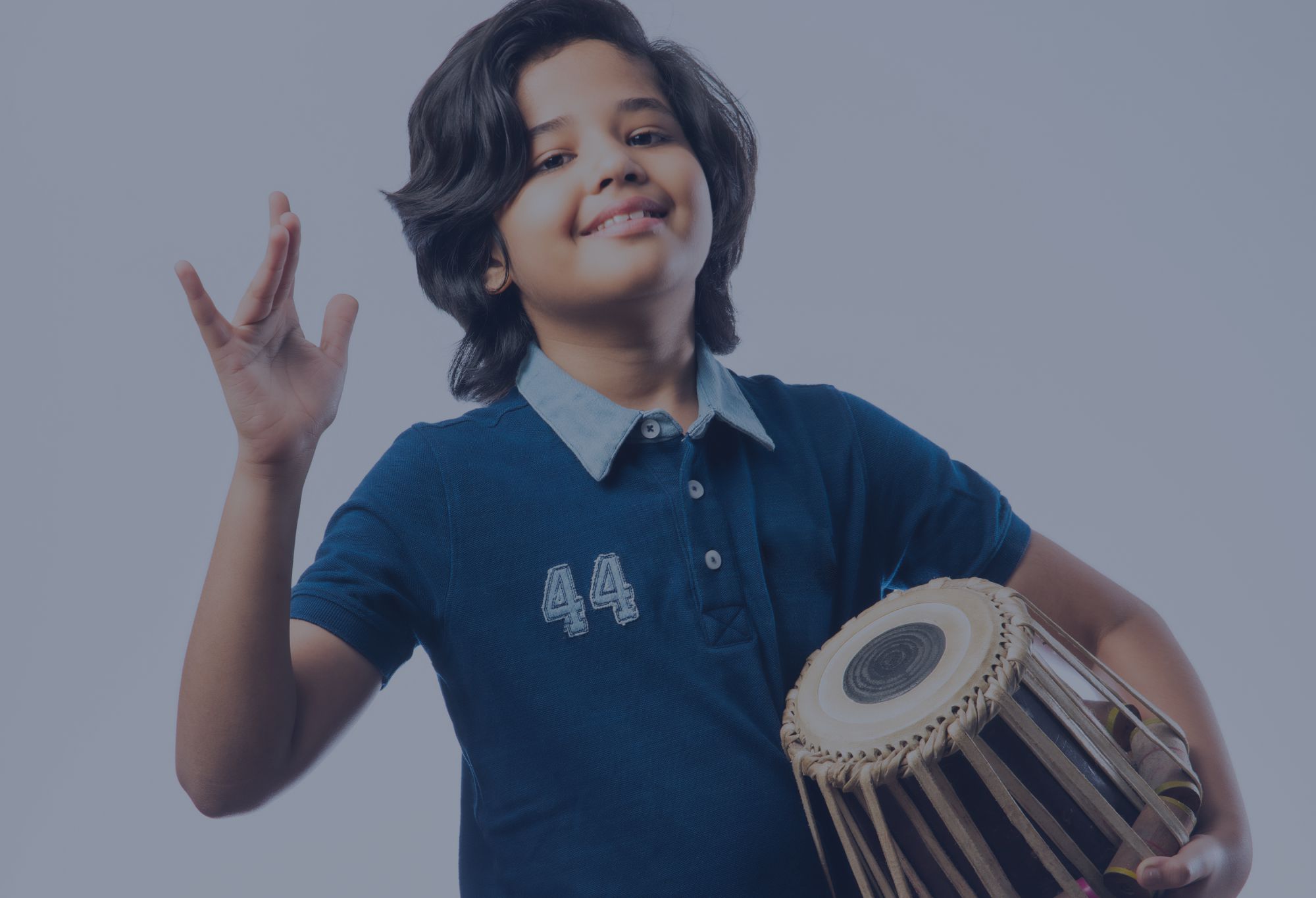At Aikya World School, we believe that education should go beyond textbooks and academic knowledge. While academic excellence is important, nurturing creativity, emotional intelligence, and critical thinking are equally crucial for a child’s overall development. One of the most powerful and transformative ways to achieve this is through the integration of music in the school curriculum.
Music, often seen merely as an extracurricular activity, holds the potential to shape a child’s cognitive, emotional, and social growth. In this blog, we’ll explore why music is an essential part of a well-rounded education and how Aikya World School incorporates it into our teaching philosophy.
- Enhances Cognitive Abilities and Academic Skills
Research has consistently shown that music has a profound impact on brain development. Learning to play an instrument, sing, or even study the theory behind music stimulates various areas of the brain, improving concentration, memory, and critical thinking.
For instance, the process of reading musical notes requires mathematical thinking, pattern recognition, and logical reasoning. These cognitive skills directly correlate with enhanced performance in subjects like mathematics and language arts. Children who are exposed to music from an early age often show improved memory retention, problem-solving skills, and higher IQ levels.
At Aikya World School, we integrate music as part of our curriculum to boost the cognitive development of our students, ensuring they not only excel academically but also develop essential life skills.
- Promotes Emotional Development
Music has a unique ability to tap into a child’s emotions, helping them express feelings that might otherwise be difficult to articulate. Whether it’s the joy of playing an instrument or the catharsis of singing a song, music allows students to connect with their emotions and develop a healthy emotional vocabulary.
Moreover, learning and performing music often helps children build confidence, self-esteem, and resilience. The process of learning an instrument or preparing for a performance involves practice, persistence, and overcoming challenges, all of which foster a sense of accomplishment.
At Aikya World School, we understand the significance of emotional intelligence in a child’s growth. Through our music programs, we encourage students to explore their emotions, communicate effectively, and build emotional resilience—essential skills for navigating life’s ups and downs.
- Fosters Creativity and Innovation
Music is an art form that thrives on creativity. Whether composing a piece of music or interpreting a song, students learn to think outside the box, experiment with ideas, and develop their unique style. These creative skills extend far beyond music and can be applied to virtually every area of life—from problem-solving in academics to developing innovative solutions in the workplace.
The practice of music encourages students to see the world from multiple perspectives. For instance, when interpreting a piece of music, students learn to consider various emotions, themes, and techniques. This kind of creative thinking nurtures intellectual curiosity and the ability to approach challenges with flexibility and open-mindedness.
At Aikya World School, we integrate creativity into every aspect of our curriculum, including music. By giving students the freedom to express themselves musically, we help them develop a lifelong love for creativity and innovation.
- Builds Discipline and Patience
Learning music requires discipline, patience, and a structured approach. It teaches children how to set goals, practice consistently, and work toward long-term achievements. The process of mastering a musical instrument, for example, can take years of focused effort, and it is through this process that children learn the value of hard work and perseverance.
At Aikya World School, we emphasize the importance of developing good habits, self-regulation, and the ability to work toward a goal over time. Music, with its demands for consistent practice and commitment, is a wonderful tool to instill these life skills in students.

- Improves Social Skills and Teamwork
Music is inherently social, whether it’s singing in a choir, playing in a band, or composing music with a group. Working together as part of a musical ensemble fosters collaboration, communication, and teamwork. Students learn how to listen to one another, synchronize their efforts, and create something beautiful as a collective.
Beyond the music room, these social skills carry over into the classroom, sports teams, and other extracurricular activities. The ability to work as part of a team is an invaluable life skill that will serve students in every aspect of their future careers and relationships.
At Aikya World School, we create ample opportunities for students to work together on musical projects, performances, and group activities. These experiences promote teamwork and help students build lasting friendships while developing vital social skills.
- Boosts Physical Development and Coordination
Playing musical instruments, especially percussion, piano, and string instruments, can enhance fine motor skills and hand-eye coordination. For younger children, dancing to music or playing rhythm-based games can improve gross motor skills, balance, and coordination.
Music also plays a role in enhancing listening skills, as students learn to differentiate between various sounds, pitches, and rhythms. This heightened awareness of sound and movement benefits both physical and cognitive development.
At Aikya World School, our music curriculum includes opportunities for students to engage in activities that enhance both fine and gross motor skills, ensuring they develop physical coordination alongside mental and emotional growth.
- Instills Cultural Appreciation and Global Awareness
Music is a universal language that transcends geographical and cultural boundaries. By exposing students to different genres of music—whether classical, folk, jazz, or contemporary—children gain a deeper appreciation for global cultures and traditions.
Furthermore, music education often includes learning about the history of different musical styles, instruments, and composers, broadening students’ cultural knowledge and fostering respect for diversity.
At Aikya World School, we incorporate a diverse range of musical traditions into our curriculum, providing students with a rich cultural education that celebrates global diversity.
- A Pathway to Future Opportunities
Finally, it’s important to remember that music can open doors to various future opportunities, both personal and professional. Whether students pursue music as a career or simply maintain it as a lifelong passion, the skills developed through music—discipline, creativity, teamwork, and communication—are invaluable assets.
Aikya World School offers a robust music program designed to help students explore their talents, whether it’s through instrumental music, voice, or music theory. We believe that fostering a love for music can lead to lifelong benefits and open up countless opportunities for personal and professional growth.
If you want your child to experience the full benefits of music in education, join Aikya World School, where we harmonize academic excellence with artistic expression.

